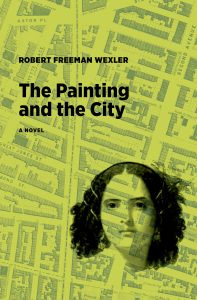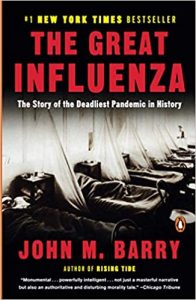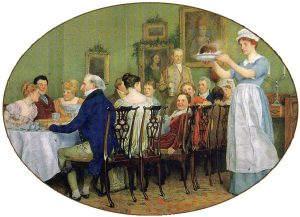Today I want to write about something reassuring, comforting or even cheering. The last few weeks have been isolated and the solution has meant much sleep and a bit too much discomfort and pain. This is more than somewhat typical of the lives of far too many of us right now.
I explored my library for comfort reading. Normally, when in crisis or misery, I’d take a large stack of books off the shelves and pile them to be read until life improves. Tonight I discovered I’ve already done that. None of the books I most needed were there. I couldn’t find the stack I’d put them into and so I thought, “I have around 7000 books. I can find another comfort read to talk about.”
I did better than that. I found my copy of Van Loon’s Lives (written and Illustrated by Hendrik Van Loon). My copy is from 1957, and has the same cover as the one I found in the local library. I first discovered it when I was teen recovering from whooping cough. Or maybe I’m simply linking the two, because I had a vaccination and am full of some of the aches that went with whooping cough. I re-read it again soon after, when I was confined to bed for two very slow weeks because something was wrong with my back.
I thought then, “Why is this like What Katy Did, and yet… not?” One reasons is that Katy addressed her illness by moralising. If she turned into the right kind of person, then she would be fine. By the end of her ordeal, she was over her illness and had become of the centre of the family. Perfect outcome. I got over my illness much faster (and, to be honest, it wasn’t severe, just a shock to not be able to get out of bed without help and to be unable to do most things) but I haven’t been and never will be a central point for my family.
Also, two weeks is not a long time. It feels like a long time for a teenager, but, in the absolute scheme of things, two weeks passes.
All of this meant that What Katy Did is not comfort reading right now. But Van Loon’s Lives is, despite the fact that Van Loon invites Torquemada for dinner but has a lack of interest in fascinating Jews. Even if I were one of the great people of history, I’d not have been invited.
Why?
It’s a book that’s full of historical dreams. Each chapter is a dinner party with famous guests from Van Loon’s sense of the past. I could read a chapter back then and that chapter would lead me to memories of other books and thoughts of what I wanted to learn about history. The first Queen Elizabeth makes an appearance, and, while my body was recumbent, my mind argued for hours about the Elizabethan material Van Loon invented and that Alison Uttley used in A Traveller in Time. That’s the special magic of Van Loon’s Lives. It’s a fantasy novel. The food is wrong, the history is not the history I know today and, even as a teen I as wondering about it, but, back then, it brought famous historical figures to life and made that enforced bedrest less intolerable.
Van Loon’s most interesting historical figures matched mine when I was a teenager. We were taught, in Australia in the 1970s, that there was nothing interesting in Jewish history but that European Christian history was magic. I wanted to meet almost all the people he wrote about. Some I knew about already (Elizabeth, for instance, and Voltaire – Voltaire is someone I’ve read a lot, but cannot like as a person), while others were my newfound lands, and I began to explore who they were and what they did (Erasmus and Descartes, always come to mind). This fantasy book triggered a whole new path of independent learning, a couple of years before university offered me formal tracks. I remember feeling so pleased that I worked out how to cook Van Loon’s own speculaas from his description in the book. It wasn’t the first bit of food decoding I’ve done from literature, but it was one of the most satisfying.
It’s been so long since I first read it that I suspect that I’ve forgotten most of what I discovered back then and really ought to begin again.
A few years ago, when I finally found my own copy of the book, I realised I had changed and with my changes came a new interpretation. As an historian, each chapter and its meal and guests told me much more about Van Loon and the way he saw the past than it told me about the history of any other period. I realised that I had learned to discount myself and my own history. It wasn’t just family I would never be central to. It was part of a reconsideration of what I knew and why I knew it and who I was. This is part of the trail that led me to write The Wizardry of Jewish Women, The Time of the Ghosts, and The Green Children Help Out. Instead of arguing from my sick bed, I argued using my own fantasies.
And now, why is it comfort reading again? Van Loon’s Lives was first published in 1943. Hendrick Van Loon wrote his book under a kind of lockdown. He was in exile from his homeland, which was under Nazi occupation. Nothing like our COVID lockdowns. In its way, this set of dinner parties is an emotional safety net for the war that was then raging. Van Loon himself doesn’t leave the war out of the volume, and the epilogue that one can’t know without investigating his life is that he wrote the book when in exile and died before the Nazis were defeated. He never went home.
It’s a comfort book right now because it’s a reminder that other writers have handled the impossibilities of life. We talk a lot about Camus, because he wrote about plague and we know plague. But the isolation of great change and the memory of how very welcoming and magic life was just a few years before the world turned upside down is just as important. It provides a way to evaluate the world that contains some emotional safety. Hendrik Van Loon sets the novel in the 1930s, when his world was safer and it was fine to invite famous guests from different times and different places.
I wonder if it’s time for another fantasy dinner party book to be written for our own comfort? Who would it include? Who should we leave out? One thing’s for certain, all the food history I’ve done in the last forty years would be useful. I know what to feed Thomas Jefferson and Elizabeth I and, yes, even Erasmus. I don’t know if I’d invite Jefferson or Elizabeth or Erasmus. Time for a new set of thoughts triggered by this single volume.


 contradictions of its history and its difficulties. Was it intended that way? As someone who once lived in NYC, what are some other thoughts you have about the city?
contradictions of its history and its difficulties. Was it intended that way? As someone who once lived in NYC, what are some other thoughts you have about the city? One of these things is not like the other.
One of these things is not like the other. number, or date of birth to anyone who phones me out of the blue. In fact, when I am in a cranky mood, I might lecture the caller about how what they’re doing is fraud. I read articles about romance, grandkid-in-jail, phony arrest warrants, and other scams. As 2021 drew to a close I realized that I had fallen into a scam I hadn’t heard of: befriending a person on social media and then inducing them to set up a GoFundMe for a medical emergency. Fortunately, I came to my senses before I sent any money from that campaign. Until then, it had never occurred to me that I had been manipulated over a year and a half. As embarrassing as the experience was for me, I’m going public in the interests of educating others.
number, or date of birth to anyone who phones me out of the blue. In fact, when I am in a cranky mood, I might lecture the caller about how what they’re doing is fraud. I read articles about romance, grandkid-in-jail, phony arrest warrants, and other scams. As 2021 drew to a close I realized that I had fallen into a scam I hadn’t heard of: befriending a person on social media and then inducing them to set up a GoFundMe for a medical emergency. Fortunately, I came to my senses before I sent any money from that campaign. Until then, it had never occurred to me that I had been manipulated over a year and a half. As embarrassing as the experience was for me, I’m going public in the interests of educating others. We have survived the holidays (they were actually lovely). But this year they required (administrative) flexibility of the sort generally associated with yogis and exotic dancers. Welcome to life in the time of COVID, and do let me know if any of this sounds familiar.
We have survived the holidays (they were actually lovely). But this year they required (administrative) flexibility of the sort generally associated with yogis and exotic dancers. Welcome to life in the time of COVID, and do let me know if any of this sounds familiar.